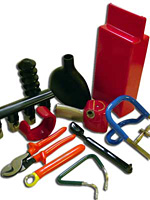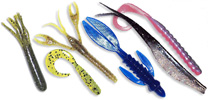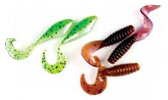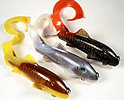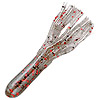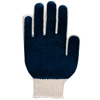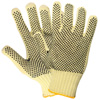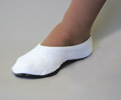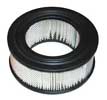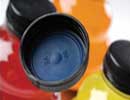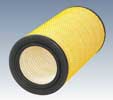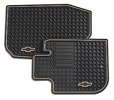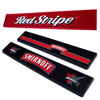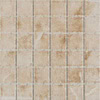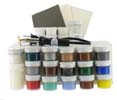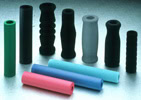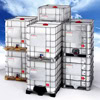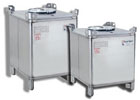Plastisol
Plastisol is a liquid form of vinyl that is cured by heat to form a solid end product. Plastisols are dispersions of PVC resin in plasticizers, and modified with other raw materials to yield the desired properties of the end user. Plastisols are considered 100% solids material.
Plastisols are very versatile, offering a multitude of application & processing possibilities. Properly cured (fused) plastisol can offer a wide variety of physical properties & attributes, all depending on the formulation.
Chemionics can custom design a plastisol formulation to provide many different properties. Some of these include:
- Custom Colors (Spectrophotometer Matching)
- Hardness / Flexibility (Shore A Durometer 10 – 98)
- Viscosity Range of 100-1,000,000 cps
- Surface Appearance (Glossy / Matte / Textured / Foams / Etc.)
- Flame Retardancy
- Low TemperaturePlastisol Vinyl
- Flexibility
- UV Resistance
- Weatherability
- Mildew Resistance
- Electrical Resistance
- Dielectric Strength
- Abrasion Resistance
- Chemical Resistance
- FDA / NSF Compliance
- RoHS & REACH Compliance
- Military Specs ( # A-A-59464A )
- Automotive Specs
- Non-Phthalate
See our Plastisol Compounding Capabilities Brochure
Chemionics custom formulates plastisols for a wide variety of industrial & commercial applications & markets, including:
- Medical
- Automotive
- Toy / Novelty
- Recreation / Sports / Fishing
- Textile/Fabric
- Glove (Industrial / Medical)
- Filtration
- Construction
- Military ( #A-A-59464A )
- Agricultural
- Sound Deadening
- Metal Finishing
- Industrial Belting
- Manufactured Stone
- Ceramic Tile
Dip Coating:

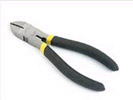


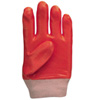
Plastisol can serve as protective, functional, and decorative coatings for a variety of applications, primarily for the coating of metal parts. Plastisols can be applied via the hot-dip & cold-dip process. Plastisol coatings can offer properties such as non-slip, cushioning, color coding, electrical insulation, abrasion resistance, impact resistance, weather and corrosion resistance. Some applications include:
- Plating Racks
- Tool Handles
- Wire Baskets / Hooks
- Automotive Parts
- Glove Coating
- Glass Bottles
- Outdoor Furniture
- Wire Forms
- Conduit
- Clips / Clamps
- Latches / Brackets
- Levers
- Chain
- Boat Anchors
Dip Molding:




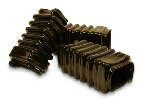
Plastisols used to mold open-ended parts by dipping a solid mold/mandrel into the plastisol, gelling a layer, fusing the gelled layer, and stripping the hollow part from the mold. Custom color matching, as well as a variety of finishes from matte to high gloss are available. Parts such as:
- Caps
- Grips
- Plugs
- Sleeves
- Bellows
- Unsupported Gloves
- Busbar Boots
- Tube Baits
- Closures
- Can Holders
- Adult Toys
Hot Melts:
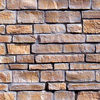
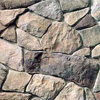

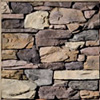

These plastisol products are heated to a molten state, & either poured or injected into a cold/room temperature mold. When cool, the hot melt plastisol is transformed into a soft, rubbery product, at which time the finished part can be removed from the mold.
One application for plastisol hot melts is in mold making for the manufactured stone industry. Our compounds are the cadillac in the industry. They can be custom formulated, however the standard (most common) types are:
- Plastisol Hot Melt/Stone Mold – 25 Shore A Durometer
- Plastisol Hot Melt/Stone Mold – 40 Shore A Durometer
Industrial Fabric Coating/Laminating:
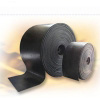
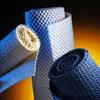
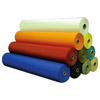
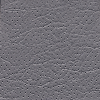
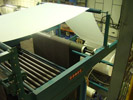
These products are used to apply a layer of plastisol onto fabrics & textiles as a coating, dip saturant, or applied to fabrics/films as an adhesive to bond multiple layers together. These plastisols are typically applied by gravure coating, reverse roll coating, knife-over-roll coating, or immersion coating. Applications include:
- Wallcovering
- Artificial Leather
- Industrial Belting
- Narrow Fabrics
- Tarpaulins / Tents
- Window Shade
- Insect Screen
- Mining Curtains
- Movie Screen
- Coated Scrim
- Automotive Security Shades / Headliner
Rotational Molding:
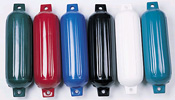

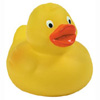


This process is used for making hollow, flexible or rigid products in a 2-part closed mold. The mold is filled with a predetermined amount of plastisol.
Applications include:
- Boat Fenders
- Toys
- Dolls / Doll Parts
- Play Balls / Sport Balls
- Medical Bulbs
- Squeeze Toys
- Statuary
- Mannequins
- Anatomical Models
- Novelty Banks
- Lamp Bases
Slush Molding:
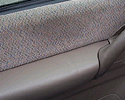
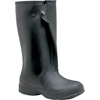

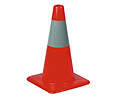
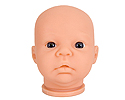
This process is used to produce hollow, flexible products by filling an open-mold (female) with plastisol, gelling an inner layer, inverting the mold to pour out the excess plastisol, and fusing the plastisol layer remaining in the mold.
Applications include:
- Industrial Boots
- Automotive Armrests/Headrests
- Toys
- Dolls
- Automotive Parts
- Vinyl Masks
Cast Molding:
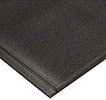
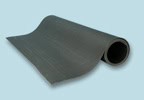
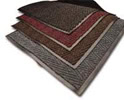
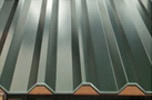
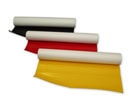
A process where plastisol is applied to either a temporary substrate (release paper), permanent substrate (fabric, metal) or directly onto a belt where the end product is removed after fusion.
Product applications include:
- Cast Film
- Material Handling Dunnage
- Walk-On Mats
- Fatigue Mats
- Sound-Dampening Barriers
Spray Coatings:
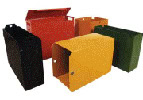
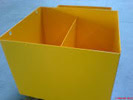
Chemionics has developed a series of unique compounds for those applications which require a sprayable plastisol. These are often used as a corrosion resistant coating, and are typically used to apply plastisol to vertical surfaces.
Some applications include:
- Tank Linings/Tank Coatings
- Battery Tray/Box Linings
Foams:
Plastisol foams are plastisols that are either chemically or mechanically blown to produce uniform cell structure. This type of plastisol typically has greater resiliency and is lighter in weight. Some applications include:
- Air Filters
- Anti-Fatigue Mats
- Bottle Cap Sealants
- Gaskets
- Specialty Textiles
- Hand Tools
- Specialty Metal Coating
- Dip Molded Grips
Non-Phthalate Plastisols:
To meet current market requirements on the use of phthalates, Chemionics announces the availability of a full range of non-phthalate plastisol formulations to mirror its current broad range of products. These are attractive to end-users who participate in the food, toy, medical & retail markets.
Please contact us for more information regarding non-phthalate plastisols!
Plastisol Related Products
The following products compliment the use plastisol compounds:
Primer:
If good adhesion to metal substrates is required, the part should be coated with a primer prior to coating with plastisol. Chemionics has an excellent line of primers that have been used in the industry for over 40 years:
- C-1445
Clear / Solvent-Based 16% Solids
- C-1452
White / Solvent-Based 25% Solids
- W-1900
White / Water-Based 24% Solids
Plasticizer Dispersions:
Chemionics currently blends many different types of plasticizer dispersions. We have a multitude of plasticizers to choose from, all depending on the type of material being dispersed, and the gel temperature required. Some of the materials that are available as plasticizer dispersions are:
- Nitrile Rubber
This dispersion is used as an additive to plastisol compounds to create “rubberized vinyl”. This dispersion, when added to plastisol, can enhance the durability of the end product, as well as increase tear, elongation, and compression rebound properties.
Other materials that can be dispersed in plasticizer:
- Flame Retardants
- Fumed Silica
- Blowing Agents
- UV Stabilizers
- Resorcinol
- Heat Stabilizers
- Pigments
- Calcium Carbonate
- Adhesion Promoters
Custom dispersions are available, so please contact us with your requirements.
Air Dry Compounds:
Vinyl, solvent-based products which do not require heat to fuse. Two standard products are:
- C-1300 Series Patch Compound
– Used to repair/patch plastisol coatings
- CT Series Dip Compound
– Used to apply a thin protective coating to metal
Plastisol Putty:
A high viscosity putty product that requires heat to cure. This is a 100% solids product. Used for small repairs & patching of plastisol coatings. Can be custom color matched. Also available in a Mil-Spec #A-A-59464A compliant version!
